Libyan Intervention Exposes European Disunity
The European intervention in Libya has provided a needed practical demonstration of the European states' ability to influence world affairs, while at the same time discrediting the expectation that the European Union itself can or will conduct a united foreign and security policy.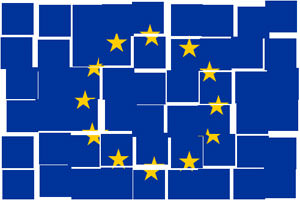
VIENNA — The European intervention in Libya has provided a needed practical demonstration of the European states’ ability to influence world affairs, while at the same time discrediting the expectation that the European Union itself can or will conduct a united foreign and security policy.
Austria, for example, still has the perceptions and habits of a neutral nation, appropriate to its post-1955 history, sentiments largely adopted by the Germans as well, despite persisting American and other NATO pressures upon Germany to serve as a permanent military auxiliary of the United States. The Germans and Austrians, and a good many other Europeans today, find the modern global role of the EU as an economic rather than political player a comfortable one, yet being unwilling themselves to wage war.
European governments launched the Libyan intervention, justified it, continue it and are now reinforcing it. The Royal Air Force has just sunk the entire Libyan navy, such as it was. It posed a threat to allied naval operations along the Mediterranean coast, so they sank it. The residential and command complex of Col. Gadhafi in Tripoli has been under repeated bombardment.
The French, whose air and naval intervention saved Benghazi from the Libyan army’s attack after the uprising first began some three months ago, now have committed a command and intervention ship carrying a dozen ground-attack helicopters intended to fight. British and French special forces have been on the ground in Libya for some time now, as intelligence and tactical advisers to the rebels, and as forward observers and target markers for the air forces in action. The helicopters will deploy their own ground-cooperation personnel.
This now has become a serious military operation for Britain, France and those other European and Arab nations that have chosen to join an effort that has overtly become a regime-change operation. The EU officially recognizes the legitimacy of the Transition Council that is now the political agent of the uprising, and has now opened an EU office in Benghazi. Catherine Ashton, the EU’s high representative for foreign affairs, visited Benghazi this week, the highest-ranking foreign official to have done so. Yet this is not an EU military operation, and no one in Europe planned it or knows where it will end.
After the French first intervened at Benghazi and the British backed them, the U.S. made a halfhearted if widely publicized effort to take over, but then backed off, continuing to employ some missiles and drones in support of the existing effort. NATO is supplying some logistical and technical support. President Obama’s political advisers and the Pentagon leadership had second thoughts about adding a third war in a Muslim country to the two from which the U.S. already seems incapable of disengagement. The American military also resists any new commitment that could put Americans “in harm’s way,” as press and politicians like to say. (Surely when people enlist, that’s part of the contract; at least it was when I was in the American army.)
This adventure should have fatal consequences for the European Commission’s determined effort to establish a strategically coherent common security and foreign policy. This produced an agreement 18 months ago in Lisbon, Portugal, to establish an EU foreign affairs office and diplomatic service to conduct what at the time was, and remains even now, a nonexistent common European foreign policy. This was like buying a hammer (a gold-plated one) when there is nothing to hammer, in the hope that the tool will create the project.
Such is a common bureaucratic assumption, which much experience confirms, that if you establish an institution it will invent for itself something to do. Nearly everyone at the Lisbon meeting, beyond a handful of enthusiasts, understood that there was no and would be no European foreign policy that possessed a strategic rationale and goal that went beyond the passive defense of Europe’s present well-being.
They ignored the reality that if the EU actually tried to put a European stamp on the world’s affairs, the U.S. would oppose it, and Europe’s most important and globally experienced members, France and Britain, would strangle it as an unwanted rival to their own national policies. The other 25 of the EU’s 27 members have always been unable and unwilling to support a unified policy that went beyond banalities of global cooperation and development, or a common defense against an invasion from Mars.
Implicitly acknowledging the pointlessness of the undertaking, they named as head of their new foreign policy institution and diplomatic service a woman previously holding a minor position in the British Labour Party, totally unknown to anyone else in Europe or the world. (This actually proved a serendipitous idea in that the most prominent candidate for the office was the egregious Tony Blair.) European politicians are already blaming the poor Baroness Ashton for Europe’s failure to stand tall in world affairs, but not even a reincarnated Winston Churchill could invent a coherent foreign policy for 27 nations.
That is the unacknowledged significance of what has happened.
Europeans can act in the world. But they inevitably will act through national institutions on national initiative. Other states may or may not join the “willing” leaders. The EU may or may not ratify what is done. Nonetheless, the Libyan intervention shows the way for Europe.
Visit William Pfaff’s website for more on his latest book, “The Irony of Manifest Destiny: The Tragedy of America’s Foreign Policy” (Walker & Co., $25), at www.williampfaff.com.
© 2011 Tribune Media Services, Inc.
Your support matters…Independent journalism is under threat and overshadowed by heavily funded mainstream media.
You can help level the playing field. Become a member.
Your tax-deductible contribution keeps us digging beneath the headlines to give you thought-provoking, investigative reporting and analysis that unearths what's really happening- without compromise.
Give today to support our courageous, independent journalists.
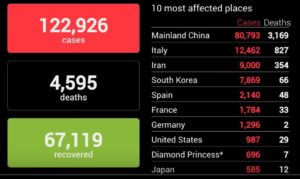
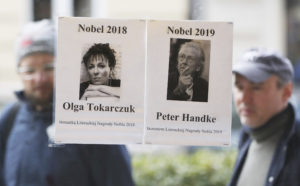
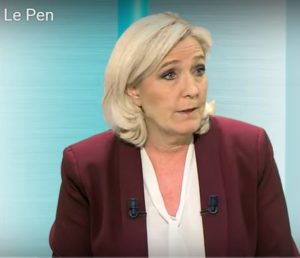
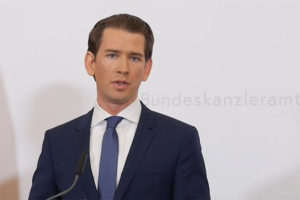
You need to be a supporter to comment.
There are currently no responses to this article.
Be the first to respond.